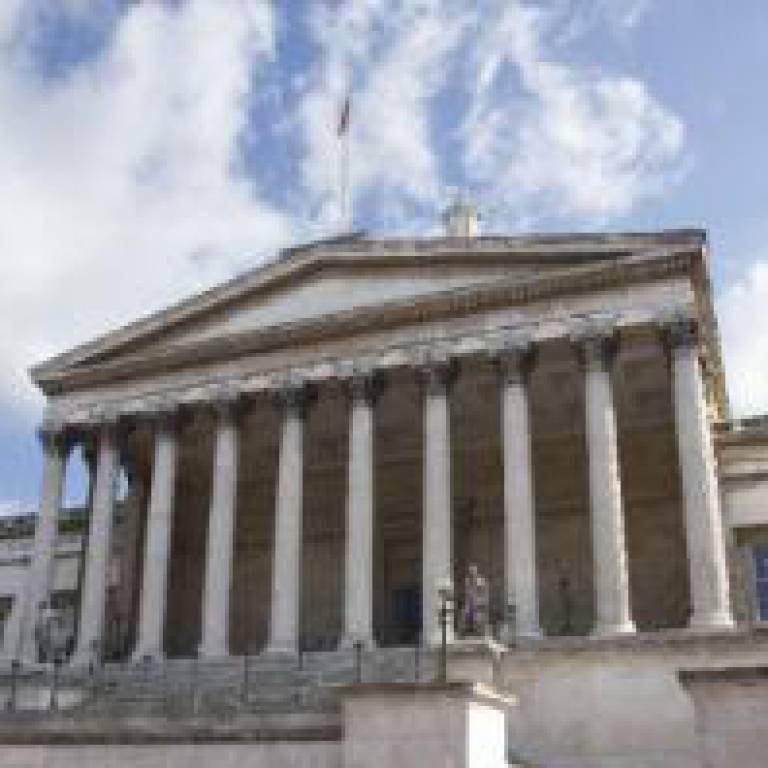UCL study: brain activity predicts our choices
26 March 2009
Links:
 ucl.ac.uk/psychlangsci/research/CPB/people/cpb-staff/t_sharot" target="_self">Dr Tali Sharot
ucl.ac.uk/psychlangsci/research/CPB/people/cpb-staff/t_sharot" target="_self">Dr Tali Sharot
A study led by UCL's Dr Tali Sharot published today in the Journal of Neuroscience has found that your brain may know what you prefer before you do.
Dr Sharot, a British Academy postdoctoral fellow at the Wellcome Trust Centre for Neuroimaging at UCL, has showed that when people rate options similarly, they will choose the one that causes more activation in the caudate nucleus, a brain region involved in anticipating reward.The study also demonstrated that after a decision is made, caudate nucleus activity increases for the selected option and decreases for the rejected one. The findings help to explain a classic finding in psychology.
In 1956, psychologists showed that after choosing between two similar home appliances, women subsequently claimed that the one they picked was better and the one they rejected was worse than they originally thought. In the current study, the researchers used functional brain imaging to explain why people re-evaluate their options after making decisions. The research team included UCL's Professor Ray Dolan, the director of the centre, and Benedetto De Martino.
The researchers imaged people's brains as they imagined taking holidays in 80 different destinations around the world. After rating how much they would like to travel to each location, participants were asked to decide between similarly rated options - for example, Greece or Thailand. Participants then imagined and rated each location again.
Participants tended to choose the location that most activated the caudate nucleus. In fact, the researchers found that this brain activity could predict where the subjects chose to vacation, even when thoughts of both options were similarly pleasurable.
Consistent with the original psychology study, participants changed their evaluation of the destinations within minutes of making their decisions. For example, if they chose Greece over Thailand, they rated Greece higher and Thailand lower after the decision was made.
The researchers found that activation in the caudate nucleus changed in parallel with this reevaluation. Compared with the initial brain scans, caudate nucleus activation increased for the selected (Greece) and decreased for the rejected (Thailand) option. The findings suggest a biological basis for post-choice reevaluation.
Dr Tarot said: "Re-evaluating our options post-choice may serve an adaptive purpose by increasing an individual's commitment to the action taken. In the absence of a rapid update of value that concurs with choice, we are likely to second-guess our decisions and actions."
The research was supported by the Wellcome Trust and the British Academy.
To find out more about this research, follow the links at the top of this article.
Wellcome Trust Centre for Neuroimaging at UCL
The Functional Imaging Laboratory (FIL) was founded in 1994 following a major grant award from the Wellcome Trust. In 2006, following a successful bid for a Strategic Award the laboratory was awarded Wellcome Trust Centre status and given its current name.
Research initiatives within the Wellcome Trust Centre for Neuroimaging are organised thematically. The principal areas of investigation are:
• Cognition & emotion
• Attention
• Plasticity, recovery & structure-function relationships
• Imaging neuroscience & theoretical neurobiology
• Consciousness & higher brain function
• Memory & space
• Language
• Visual awareness
• MRI Physics
• Methods
Read more
Podcast Series: Today's Neuroscience, Tomorrow's History, Part 2
 Close
Close

